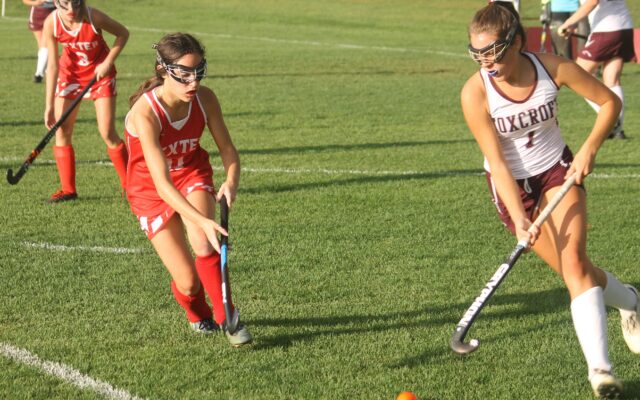
Maine high school sports returns to competitive playoff format
By Larry Mahoney, Bangor Daily News Staff
The governing body of Maine’s high school sports has returned to the playoff format that was used before the COVID-19 pandemic, with just two-thirds of the teams in each regional class qualifying for the playoffs.
Beginning in spring 2021, the Maine Principals’ Association held open tournaments that allowed every team to make the playoffs. That was created because teams weren’t able to play the same number of games due to COVID-19-induced cancellations.
Teams also played more games against schools within their geographic region from a different class instead of a normal schedule, which would have seen them play teams in their own class from much farther away.
Mike Bisson, the assistant executive director of the MPA, explained that there was support for the open tournament, but the majority of the athletic directors and coaches favored the return to the two-thirds format.
“They wanted the regular season to mean a little more. It makes teams have to qualify for the tournament,” Bisson said.

GOING ON OFFENSE — Annie Raynes brings the ball out of the Foxcroft end of the field against Dexter’s Lexi Vafiades with Tiger McKenzie Clay looking on during an October 2021 game in Dover-Foxcroft.
He explained that the two-thirds format wouldn’t have been fair when teams were playing local teams, especially those in lower classes, instead of their usual class opponents because they may not have been able to earn enough Heal points to qualify for the playoffs.
Under the open format, “they may not have gotten the seed they wanted, but they still had a shot (to win the tournament),” he said
“We made the adjustments we needed to based on what was going on in our society,” said Orono High Athletic Director Mike Archer, referring to the open tournament. “But everyone wants to get back to where things were before the pandemic.”
The Heal Points system will remain the same as it has been during the pandemic with the divisor being based on the number of games played up to that point and not on the number of the games on the schedule.
Bisson said there were several other rule changes discussed among the MPA members, but none of them were implemented due to lack of support.
Those changes included ditching overtimes after regular season games and just settling for ties.
In field hockey, if a game is tied after regulation, each team removes four players, and they play seven vs. seven for two, 8-minute periods, and the first goal wins.
If it is still tied, it goes in the books as a tie.
In the playoffs, the overtimes are followed by a six vs. six penalty corner format.
In soccer during the regular season, teams play two 5-minute periods in the normal 11 vs. 11 set-up with the first goal deciding it. If nobody scores, it’s a tie.
In the playoffs, the teams play two 15-minute sudden-death periods.
That is followed by penalty kicks with each team sending five shooters to the penalty spot.
Bisson said the soccer coaches were approached about the idea of playing seven vs. seven in overtime like field hockey, but there was no support for it.
They also discussed a penalty-kick shootout after overtime in regular season games, so teams would be prepared for it in the postseason.
But, again, the interest was very minimal.
In football, the overtime for both regular season and playoff games involve each team getting the ball at the other team’s 10-yard line and eventually coming up with a winner.